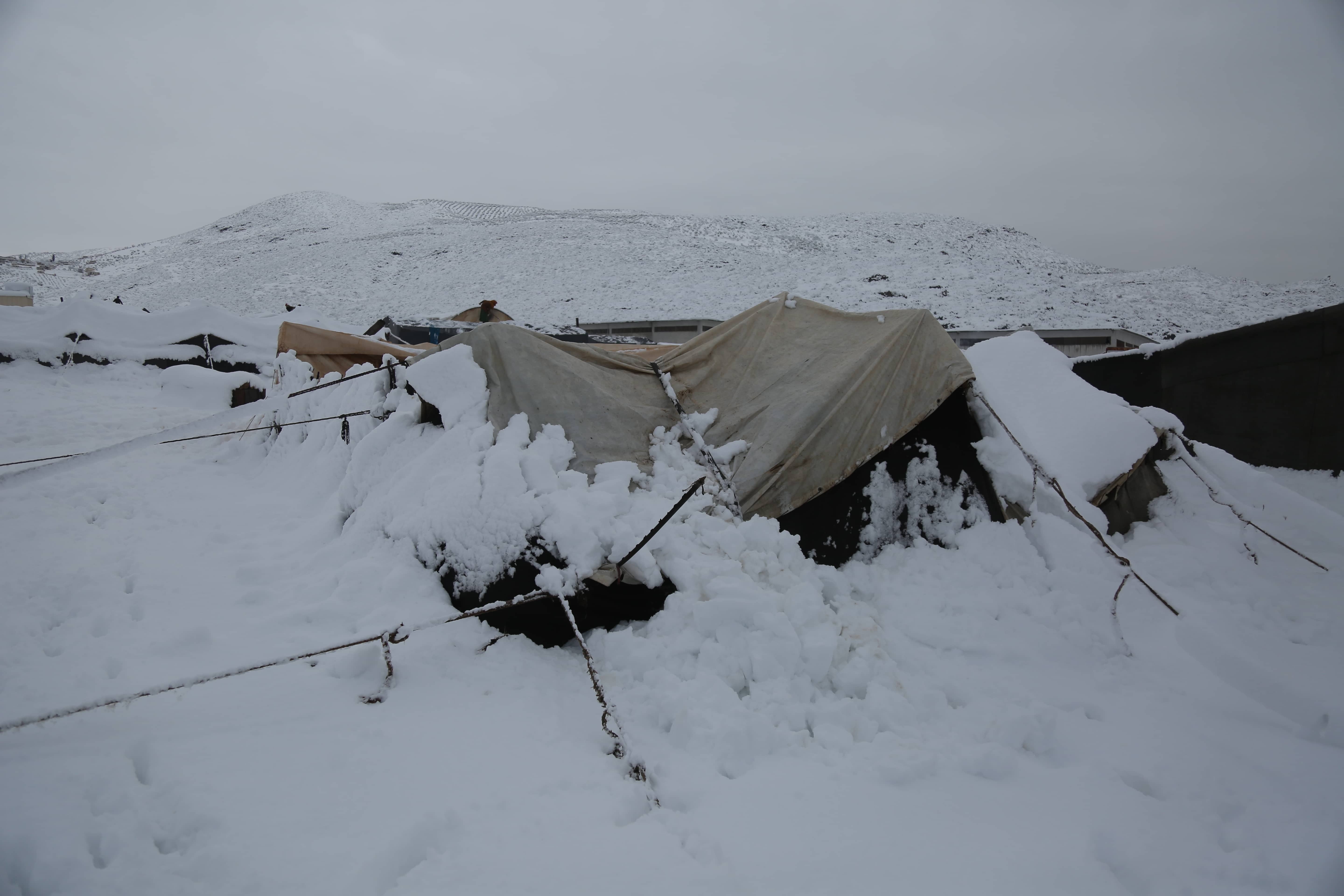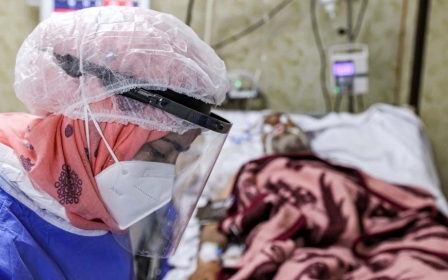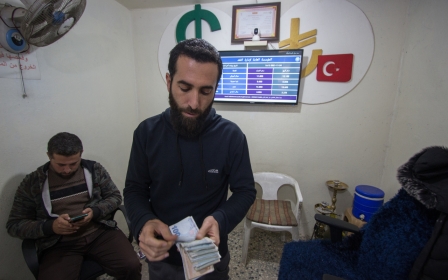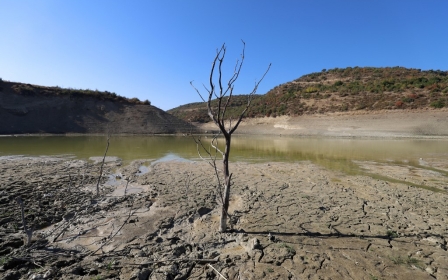Syria: One child dies after heavy snowstorm hits Idlib displacement camps
At least one Syrian child has died in Idlib after a heavy snowstorm hit displacement camps in the country's northwest, devastating hundreds of makeshift camps.
Heavy snow caused a family's tent in the Qastal Miqdad area to collapse, killing the child and critically injuring the mother. The storm struck on 18 January, according to the UN Office for the Coordination of Humanitarian Affairs (UNOCHA).
Two children were also hospitalised due to the cold, the UN agency said.
The storm dubbed "Hiba", which has hit other parts of the Middle East, has destroyed 362 tents, affecting over 2,000 displaced Syrians living in camps in the northwestern provinces of Idlib and Aleppo, and in Lebanon, it added.
Humanitarian group Care Syria warned earlier this week of the devastating effects the snowstorm was expected to have on the displaced population in Syria.
“People can see their own breath when lying on their thin mattresses. You will see children walk around in flip-flops and ripped shirts. Families are afraid that they will freeze to death,” Jolien Veldwijk, Care Syria country director said.
Worsening conditions
Storm Hiba, which started on Tuesday and peaked on Thursday, is expected to last for up to a week. The storm had a wind speed of up to 80km per hour accompanied by heavy hail and snowfall, putting hundreds of thousands of displaced Syrians living in precarious conditions at great risk.
The snowstorm comes at a time when living conditions have substantially worsened in recent months with funding cuts putting the healthcare system at risk.
The Syrian war, which started in 2011 after a government crackdown on mass protests, has created one of the worst humanitarian crises in the world.
Around 6.7 million people are internally displaced, and another 6.8 million are refugees in neighbouring countries.
The snowstorm has also hit parts of Lebanon, Jordan and Saudi Arabia. Images taken in the Tabuk region in the Saudi kingdom showed mountains blanketed in snow.
Temperatures are expected to fall to 14 degrees Celsius below zero, which is the lowest it has been in the region for the past 40 years.
While snow during winter is not uncommon, climate change has had a deep effect in Syria with harsher winter and severe flash floods making it more difficult to cope.
Middle East Eye propose une couverture et une analyse indépendantes et incomparables du Moyen-Orient, de l’Afrique du Nord et d’autres régions du monde. Pour en savoir plus sur la reprise de ce contenu et les frais qui s’appliquent, veuillez remplir ce formulaire [en anglais]. Pour en savoir plus sur MEE, cliquez ici [en anglais].





